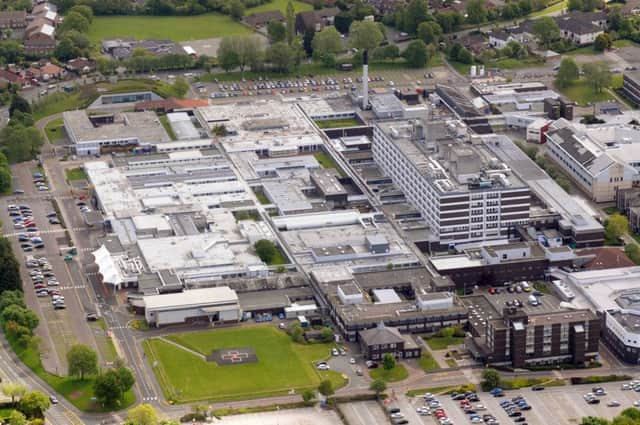Readers' letters


Re: Possible Preston and Chorley Hospital closures (LEP August 16). There is no doubt in my mind that, if the idea of closure of the two above mentioned hospitals is being bruited about, then it is more or less likely to be a fait accompli.
Why not save money on the consultation – especially with the public who never seem to get listened to – and just go ahead with it?!
Advertisement
Hide AdAdvertisement
Hide AdWhat will replace the hospitals? Housing estates with more traffic chaos?
With all the constant griping about hospital beds being blocked by the elderly and those who have no one to care for them on discharge, wouldn’t it make sense for at least one of the two to be kept on as a convalescent hospital?
There would be a price but surely doing that could be cost-effective in the long-run?
Even in a new super hospital, the bed-blocking problem would still be there and include younger patients too, who might be worried about too early a discharge if beds were needed and care plans not in place.
Advertisement
Hide AdAdvertisement
Hide AdA few more days of professional care could make a huge difference to patients’ well being.
Facilities are in place in either hospital to convert the use, as are the staff and, in the past, such places were a great success.
Many of the old ideas that have been dropped in the name of modernity have proved to be a great loss and really should be resurrected.
Nursing there (in a convalescent hospital) could be a good way to introduce newly qualified staff into hospital life and a good way for the rest of us to realise that we might all need such help sometime in our lives, not just when we become elderly.
Advertisement
Hide AdAdvertisement
Hide AdWe wouldn’t have to lie in a hospital bed feeling we were a burden. How can doing that help in a patient’s recovery?
Christine Cross via email
A sickness in our society
There was a recent incident where a girl was told by members of the public to jump from the top of a high building, an action that would almost certainly have caused her death. This is horrifying but not surprising.
In a recent letter, I criticised the growth in the use of mobile phones to photograph injured people (LEP Letters, July 20).
I have no doubt whatsoever that there would have been a rush to take photos of this young girl as she lay dying. Those photos would then have been posted on social media. To say there is a sickness in our society is a gross understatement.
Advertisement
Hide AdAdvertisement
Hide AdToday, there are people of both sexes who relish and get kicks out of other people’s suffering. No words can describe such individuals.
I also find it disturbing that, in this instance, the police didn’t clear the area and prevent these sick people from baying at a poor girl like an unhinged mob.
I repeat what many eminent researchers, such as Professor Tom Jenkinson, have said, namely that social media is: ‘“One of the most divisive and dangerous developments of modern times. Its obvious merits masks a host of anti-social dangers that society will regret in years to come.”
Dr Barry Clayton via email
Thanks to all competitors
Blackpool Fylde and Wyre Blind Society wishes to thank all those who entered the fundraising competition held at the recent Great Eccleston and Garstang Agricultural Shows.
Advertisement
Hide AdAdvertisement
Hide AdThe winner was John Askew, from Crosby, who was delighted to receive his prize of a £50 Booths Gift voucher. We are also very grateful to Booths for their generous support of our fundraising. The society depends on donations and fundraising to provide services and support for visually impaired and blind people living in Garstang and Wyre.
Ruth Lambert, Chief Executive, N-Vision